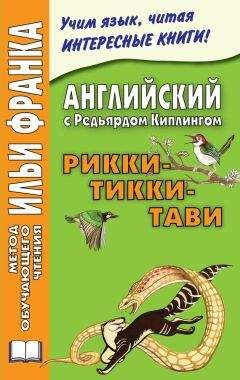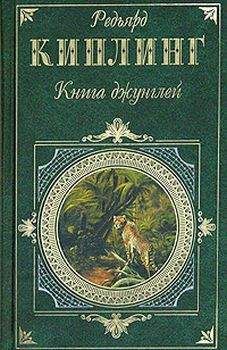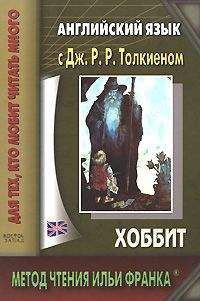And at last, when the flames died down, and the red light of the logs made the elephants look as though they had been dipped in blood too, Machua Appa, the head of all the drivers of all the Keddahs – Machua Appa, Petersen Sahib’s other self, who had never seen a made road in forty years: Machua Appa, who was so great that he had no other name than Machua Appa, – leaped to his feet, with Little Toomai held high in the air above his head, and shouted: “Listen, my brothers. Listen, too, you my lords in the lines there, for I, Machua Appa, am speaking!
This little one shall no more be called Little Toomai (этого малыша больше не будут называть Маленький Тумаи), but Toomai of the Elephants (/отныне/ он – Слоновый Тумаи), as his great-grandfather was called before him (как называли до него его прадеда). What never man has seen he has seen through the long night (всю долгую ночь = ночь напролет он видел = созерцал то, чего никогда /не/ видел /ни/ один человек), and the favor of the elephant-folk and of the Gods of the Jungles is with him (милость слоновьего народа и Богов Джунглей – с ним; favor – благосклонность, милость). He shall become a great tracker (он станет великим охотником). He shall become greater than I, even I, Machua Appa (он станет более великим, чем я, – даже я, Мачуа Аппа)! He shall follow the new trail, and the stale trail, and the mixed trail, with a clear eye (он будет следовать = распознавать новые следы, старые следы, смешанные следы /слонов/ своим ясным взглядом; stale – несвежий, чeрствый)! He shall take no harm in the Keddah when he runs under their bellies to rope the wild tuskers (ему не причинят вреда в кеддахе, когда он будет пробегать под их животами, чтобы накинуть веревку на дикого зверя; harm – вред; belly – живот, брюхо; to rope – связывать веревкой; tusker – животное с клыками, бивнями); and if he slips before the feet of the charging bull elephant (и если он поскользнется перед ногами нападающего слона-буйвола; to slip – скользить; to charge – заряжать; нападать, атаковать), the bull elephant shall know who he is and shall not crush him (этот слон-буйвол будет знать, кто он такой, и не раздавит его; to crush – давить, жать).
This little one shall no more be called Little Toomai, but Toomai of the Elephants, as his great-grandfather was called before him. What never man has seen he has seen through the long night, and the favor of the elephant-folk and of the Gods of the Jungles is with him. He shall become a great tracker. He shall become greater than I, even I, Machua Appa! He shall follow the new trail, and the stale trail, and the mixed trail, with a clear eye! He shall take no harm in the Keddah when he runs under their bellies to rope the wild tuskers; and if he slips before the feet of the charging bull elephant, the bull elephant shall know who he is and shall not crush him.
Aihai (ай-ай)! my lords in the chains (мои господа в цепях),” – he whirled up the line of pickets (он повернулся к ряду кольев; to whirl – вертеть/ся/) – “here is the little one that has seen your dances in your hidden places (вот малыш, который видел ваши танцы в ваших тайных местах; to hide – прятать/ся/, скрывать/ся/), – the sight that never man saw (зрелище, которое никогда /еще не/ видел /ни один/ человек; sight – зрение; вид, зрелище)! Give him honor, my lords (воздайте ему почести, мои господа)! Salaam karo, my children (салаам каро, мои дети). Make your salute to Toomai of the Elephants (салютуйте Слоновому Тумаи)! Gunga Pershad, ahaa (Ганга Першад, ахаа)! Hira Guj (Хира Гудж), Birchi Guj (Бирчи Гадж), Kuttar Guj, ahaa (Каттар Гадж, ахаа)! Pudmini, – thou hast seen him at the dance (Падмини, ты видела его во время танца), and thou too, Kala Nag, my pearl among elephants (и ты тоже, Кала Наг, моя жемчужина среди слонов)! – ahaa (ахаа)! Together (/все/ вместе)! To Toomai of the Elephants (Слоновому Тумаи). Barrao (баррао)!”
Aihai! my lords in the chains,” – he whirled up the line of pickets – “here is the little one that has seen your dances in your hidden places, – the sight that never man saw! Give him honor, my lords! Salaam karo, my children. Make your salute to Toomai of the Elephants! Gunga Pershad, ahaa! Hira Guj, Birchi Guj, Kuttar Guj, ahaa! Pudmini, – thou hast seen him at the dance, and thou too, Kala Nag, my pearl among elephants! – ahaa! Together! To Toomai of the Elephants. Barrao!”
And at that last wild yell the whole line flung up their trunks till the tips touched their foreheads (и при последнем бурном восклицании весь ряд = все слоны вскинули свои хоботы /так высоко/, что коснулись их концами своих лбов; wild – дикий; бурный, необузданный, неконтролируемый; исступлeнный, безудержный; to fling – бросаться, кидаться; to fling up – подбрасывать, вскидывать; to touch – /при/касаться, трогать), and broke out into the full salute (и разразились полным салютом; to break out – вспыхивать, разражаться) – the crashing trumpet-peal that only the Viceroy of India hears (грохочущие трубные раскаты, которые слышит только вице-король Индии = которые обычно раздаются лишь в честь вице-короля Индии; peal – звон колоколов; раскат), the Salaamut of the Keddah (Салаамут кеддаха).
But it was all for the sake of Little Toomai (но все это было в честь Маленького Тумаи), who had seen what never man had seen before (который видел то, чего раньше не видел ни один человек) – the dance of the elephants at night (танцы слонов ночью), and alone in the heart of the Garo hills (и /видел/ один в самом сердце гор Гаро)!
And at that last wild yell the whole line flung up their trunks till the tips touched their foreheads, and broke out into the full salute – the crashing trumpet-peal that only the Viceroy of India hears, the Salaamut of the Keddah.
But it was all for the sake of Little Toomai, who had seen what never man had seen before – the dance of the elephants at night and alone in the heart of the Garo hills!
Бладхаунд – ищейка (порода собак).
Лайм настоящий – разновидность лимона.
Бентамки – порода кур.
Chant – песнь, песнопение; напев, хорал.
To sing – петь.
Пандемониум – ад, обитель демонов.
Магут – погонщик.
Ховдах – род седла.
Господин (араб.).




